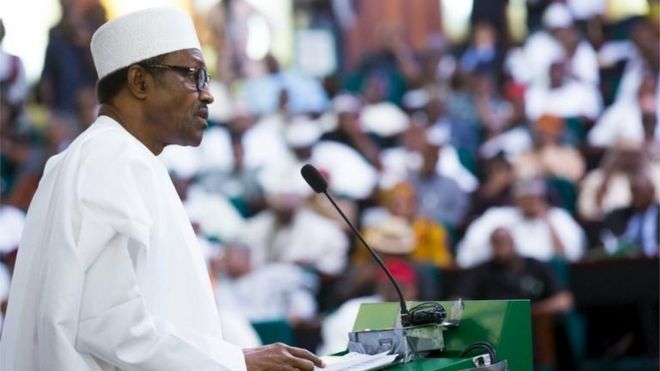Nigeria raises borrowing in budget as oil prices fall
Nigeria's president has announced plans to raise spending by 20% next year by borrowing heavily amid falling oil prices
In
his first budget since his election victory in March, Muhammadu Buhari
said he would spend $31bn (£20.8bn) in 2016 on infrastructure and the
economy.
However, Nigeria has been hard hit by the falling price of oil.
Petroleum exports make up 90% of total overseas revenue, according to the Opec oil cartel.
The
country's budget deficit is expected to double to 2.2 trillion naira
($11bn, £7.4bn) next year and Buhari said the government would seek
funding overseas of 900bn naira as well as 984bn naira domestically.
Oil
prices have fallen from about $55 a barrel since the beginning of the
year to around $36-$37 and Mr Buhari said that of the 3.9 trillion naira
revenue forecast for 2016, just 820bn will come from crude.
Mr
Buhari said: "This huge decline is having a painful effect on our
economy. Consumption has declined at all levels. In both the private and
public sectors, employers have struggled to meet their salary and other
employee related obligations."
The president pledged to improve
tax collection and invest in other industries including mining and
agriculture. "The Nigerian economy needs to move away from dependency on
oil," he said.
Nigeria's
unemployment rate is growing, up from 8.2% in the second quarter to
9.9% between July and September according to official figures. Inflation
is also rising, hitting 9.4% in September, on fuel shortages and higher
food prices.
However, Mr Buhari said he expected Nigeria's economy to grow by 4.4% next year.
"The
2016 budget, as outlined, is designed to ensure that we revive our
economy, deliver inclusive growth to Nigerians and create a significant
number of jobs," he said.
Source: BBC



Comments
Post a Comment